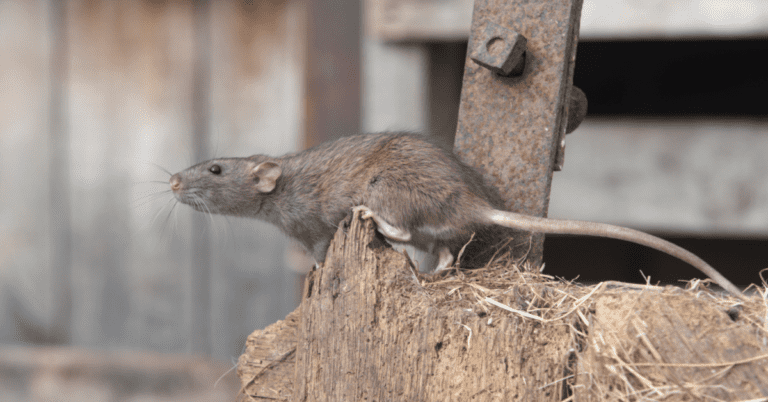How Rodents Enter Your Home
Not sure how you could have a rodent infestation? Did you know Mice only need 1.5cm or the size of a dime to enter your home and rats only need 2.5cm or roughly the size of a quarter?


Common Rodent Species
Common Rodent species that can infest your home or business in our area include Roof Rats, Norway Rats and House Mice. Angel Pest Control technicians are trained to recognize entry points, conducive conditions and tell tale signs of a major rat infestation for example the presence of burrows going under your house or shed. Rodents like rats and mice that are found in and around structures are sometimes referred to by professionals as “commensal rodents.” Commensalism is defined as one organism obtaining food or other benefits from another, in the case of rats and mice they have adapted to depend on humans even adapting to eating the same foods as us, often from disposed foods in our garbage cans and dumpsters. Sometimes these pest rodents enter our homes for shelter and eventually find their way into our kitchens and pantries.

Other types of “semi-commensal” rodents that might find their way into our homes are squirrels or voles, often seeking shelter and food. The rodent family is very big with more than 2000 species, ranging in size, habitat and appearance. Aside from being mammals the most common trait among rodents are their teeth, you might say its ALL ABOUT THEIR TEETH. The word rodent comes from the word “rodere” which means to gnaw…Rodents have two pairs of extremely strong top and bottom incisors, that grow continuously and when paired with their uniquely strong jaw muscles it not only puts them in the rodent family it gives them the impressive ability to gnaw.
You have probably heard that there is an active rodent infestation in our community and as a result you might worry that your home or business might be at risk of these unwanted visitors take squatters rites in your attic, walls, basement, garage, shed or under your deck.
Signs of a Rodent Infestation
How can you say “We have a rodent problem” without saying we have a rodent problem…
- I keep hearing scratching sounds in my attic and walls.
- My dog keeps scratching and pawing at our deck.
- My garage has a weird smell and I keep finding droppings in the corners and on storage shelves.
- Something has chewed through the pet food container and pet food has spilled all over the floor.

There are many signs of a rodent infestation, some obvious others less obvious.
One thing is for sure it can be frightening knowing that a rodent infestation is occurring in your neighborhood, after all rodents are known to spread disease and are notorious for using their strong teeth to gnaw and chew through just about anything including walls, home electrical wiring, plumbing pipes and even concrete cinderblocks! Rats are wild animals that are capable of causing expensive damage to your property and are known to inflict painful bites and scratches if handled. Rodent identification, control and prevention is a job best left to a professional like those at Angel Pest Control.
Rodents especially rats are referred to by professionals as “neophobic” meaning they are afraid or cautious of new things in their environment like improperly set traps and baits. Rats like the roof rat can sometimes take weeks to catch without professional help, during which time they are breeding and making the infestation and population even larger. Rats breed at an astounding rate and in some situations rats are being born and populations are increasing faster than a homeowner can catch them. A female rat can give birth to six litters per year each consisting of twelve rat pups. Within nine weeks they reach sexual maturity, which means two rats can multiply to 1,250 in just one year. This is why it is important to determine and have information about other locations in your neighborhood and community that are experiencing a rat infestation.
Call Angel Pest Control
Our Angel Pest Control experts can come into your home and determine how they are entering your home, what they are eating, where they are nesting and develop a comprehensive plan to eliminate an infesting population and help prevent future infestations. Contact Us for an evaluation and peace of mind.






